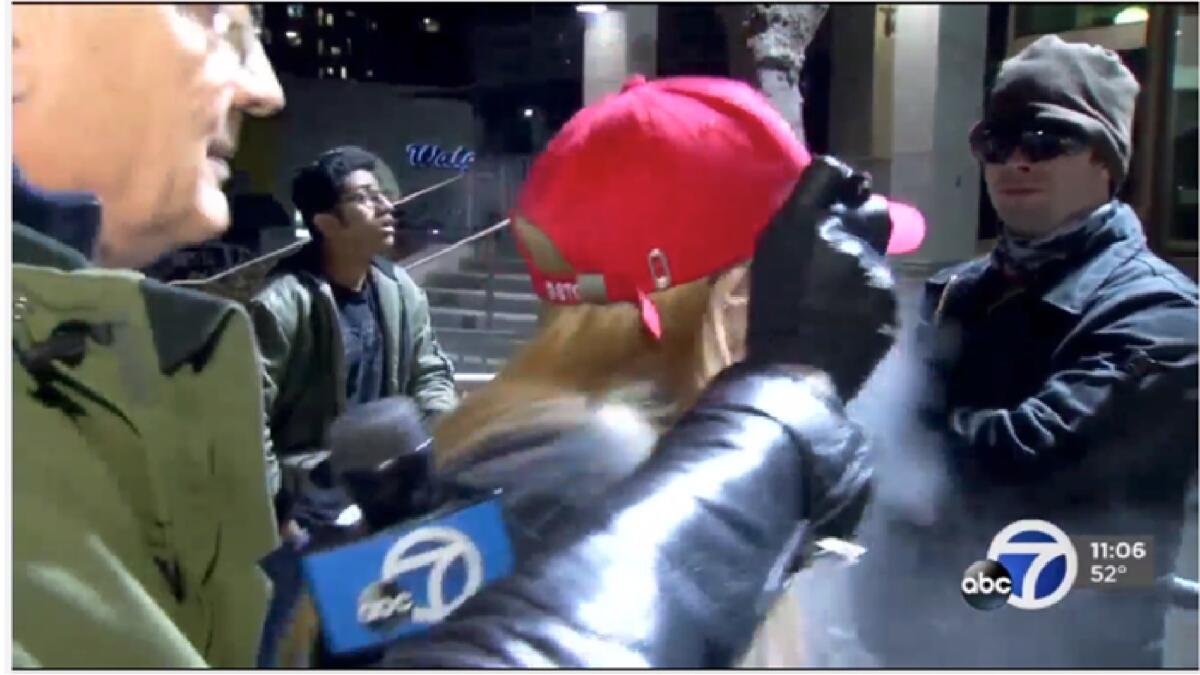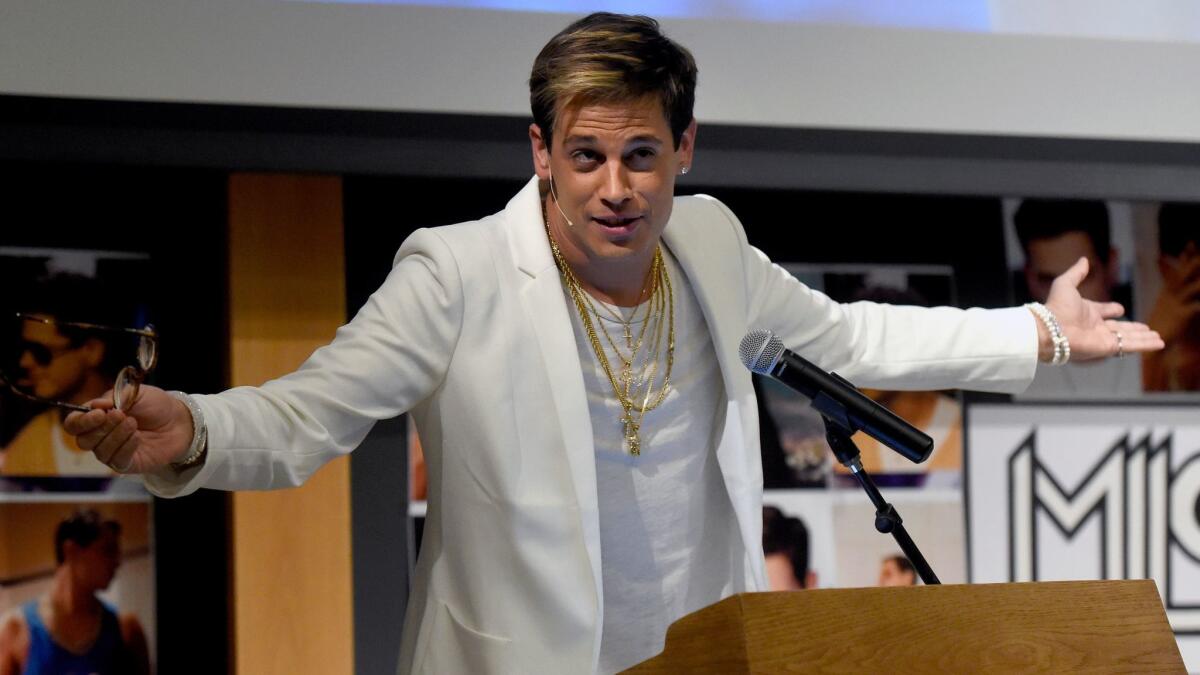Milo Yiannopoulos fan seeks $23 million after being attacked with pepper spray in UC Berkeley melee

Robles says the university chose to withhold police protection because of Yiannopoulos’ political beliefs. (June 7, 2017)
An Oakland woman is suing UC Berkeley and 15 other parties, claiming they did nothing to protect her when she was attacked by protesters with pepper spray while attending a planned speaking event for conservative provocateur Milo Yiannopoulos on campus in February.
In a federal lawsuit filed Monday, Kiara Robles said she is seeking $23 million in damages for the attack — some of which was videotaped.
According to the lawsuit, Robles visited the UC Berkeley campus on Feb. 1 because she wanted to see Yiannopoulos speak. Fifteen minutes after she arrived, violence erupted on campus. Yiannopoulos’ event was immediately canceled amid chaotic protests.
As she was being interviewed by a KGO-TV news station reporter, Robles said, she was attacked by both masked and unmasked assailants with painful pepper spray and bear spray — all because “she chose to exercise her right to freedom of speech and show support for the planned speaker, Milo Yiannopoulos.”

She said no campus police were present as she was being attacked.
“Instead, nearly 100 campus police and SWAT members waited in the Student Union building, within eyesight of the violence happening outside, watching the protesters become more belligerent and dangerous,” Robles said.
She claims the university chose to withhold police protection because she, Yiannopoulos and a large number of his supporters are gay and politically conservative.
The university, she said, “has acted to unconstitutionally curtail the 1st Amendment rights of its students and invitees.”
She said UC Berkeley students and guests who did “not subscribe to the radical, left-wing philosophies” were subjected “to severe violence and bodily harm for merely expressing a differing viewpoint, in clear contravention of their rights under the 1st Amendment to the U.S. Constitution.”
The lawsuit’s defendants include: UC Berkeley Chancellor Nicholas Dirks, House Minority Leader Nancy Pelosi (D-Calif.), activist billionaire George Soros, UC President Janet Napolitano, UC Board of Regents Chairwoman Monica Lozano, Berkeley Mayor Jesse Arreguin, and the University of California and Berkeley police departments.

In a statement issued Wednesday, UC Berkeley said it “intends to mount a vigorous and successful defense of its actions, and looks forward to contesting this collection of false claims.”
The university said campus police and administrators are committed to supporting free speech and providing safety.
Prior to the Yiannopoulos event, “administrators and UCPD spent countless hours and substantial University resources planning security measures to enable the event to occur,” the university said. “Faced with an unprecedented level of organized violence, UCPD responded in a manner designed to minimize injuries to innocent members of the surrounding crowd, defend the building from incursion by massed attackers, and protect and safely remove the speaker.”
In the days after the violent protests, UC Berkeley officials said moving officers into the melee would have created a lethal situation.
Authorities blamed a group of violent protesters, whom they described as a paramilitary force, for the disturbance. Armed with bats, steel rods, fireworks and Molotov cocktails, the agitators set a fire on campus and prevented Yiannopoulos from speaking.
Given the current political climate, Robles contends that university officials should have foreseen the violence. She said their actions were “a callous and blatant disregard for safety” for Yiannopoulos’ fans.
“Based on the recent frequency of violence associated with political protest in the United States,” Robles said, “defendants were, at a minimum, grossly negligent — if not intentionally negligent — by hiding behind glass windows in order to further the protestors’ politically motivated agenda — in failing to provide effective police protection for the crowds present at one of their own events.”
Twitter: @VeronicaRochaLA
Start your day right
Sign up for Essential California for news, features and recommendations from the L.A. Times and beyond in your inbox six days a week.
You may occasionally receive promotional content from the Los Angeles Times.



